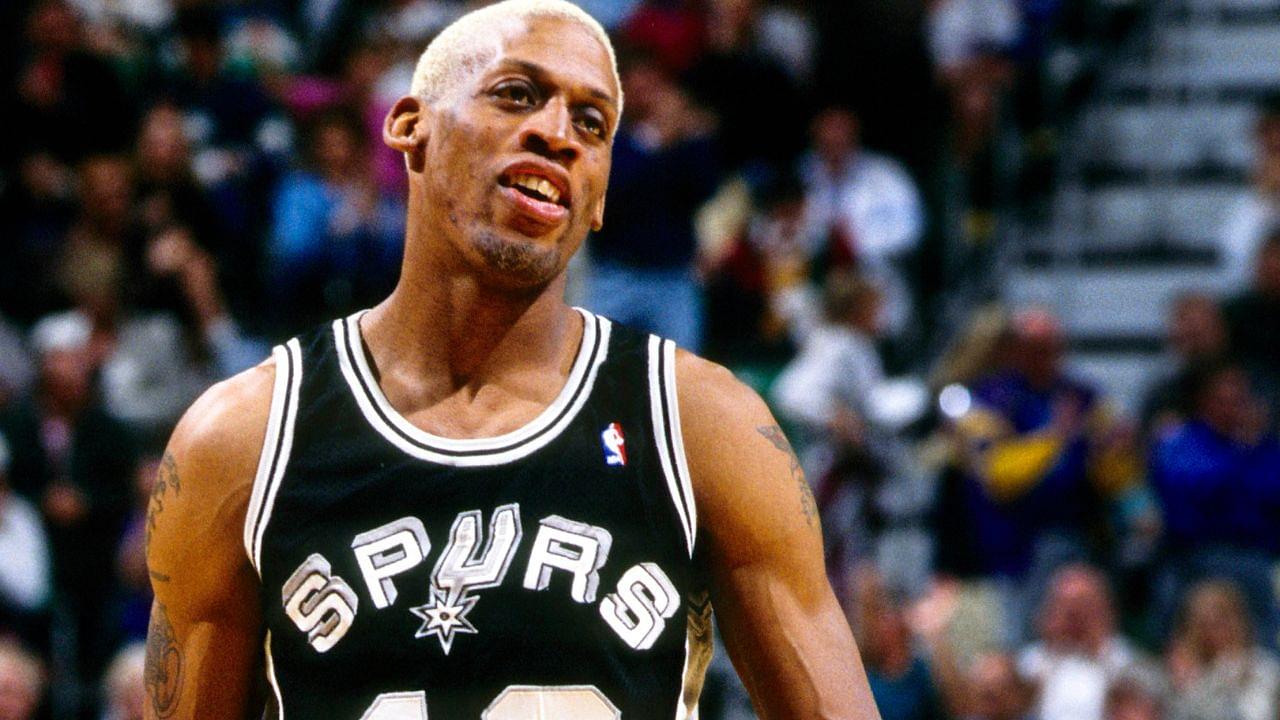NBA players today arrive at the arena in bold outfits that can border on being labeled risque. However, that wasn’t the case until Dennis Rodman arrived on the scene. From his colorful hair to his vibrant outfits, the forward pushed the envelope with his style. But it also subjected him to some prejudice.
Advertisement
On the Got Sole podcast, Rodman was asked about people’s perceptions of him through the years. He revealed that during his time with the Spurs, people often questioned his sexuality. His eccentricity attracted a lot of criticism, especially from people in conservative cities like San Antonio. Rodman said,
“A lot of people thought I was gay. Cause I was cross-dressing, women’s clothes… Imagine guys, in San Antonio, the Bible bumping city in the world. I was going to gay clubs, gay pride, doing this and that.”
While on the Spurs, Rodman was dating celebrities, wearing crop tops, and painting his nails. He was also one of the few athletes raising awareness about fatal diseases like AIDS. He even colored the Red Ribbon on his head in 1995.
This was all unheard of at the time, particularly for a player of his stature. The forward believes it was one of the factors that led to his departure from San Antonio, saying,
“The only reason why they kept me around was because we was winning. That’s the only reason they kept me around.”
Once he was ousted from San Antonio and joined the Bulls, Rodman seemed freer than ever to pursue his self-expression.
Dennis Rodman just wanted to remain “open to things”
During an interview with DJ Vlad last year, the two-time Defensive Player of the Year was asked about the excerpts from his autobiography, ‘As Bad As I Wanna Be‘ that gave an insight into his sexuality. He explained,
“I’m just an open individual that loves people…I don’t have to be gay to love my gay community. My gay community loves me because I respect it. You know, I’m not judging them or their character or their desire to be who they are.”
In the 1990s, Rodman’s liberal thought process wasn’t the norm. It still might not be. But by forcing people to confront their own biases, he left a legacy far greater than basketball.
Gender-fluid fashion designer Sam Ratelle lauded the five-time NBA champion’s impact in helping normalize freedom of expression. In a feature story on CNN, they said,
“Dennis taught us something hugely important: to not give a single f**k! I see him in OutKast and Macklemore, in Burning Man, in all the ’90s trends that are seen on the catwalks, and even my own work with Billy Porter.”
Rodman was far ahead of his time, in more ways than one, and is the reason he’s among the most memorable players in NBA history.





